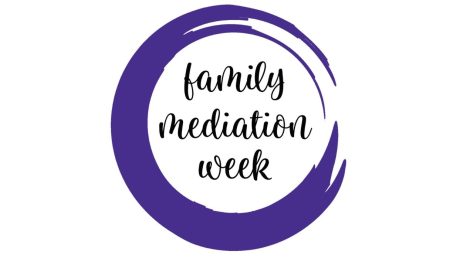Family Mediation Week is a campaign organised by the Family Mediation Council that aims to raise awareness and promote mediation as a means for couples to resolve family disputes.
While there has been considerable uptake in mediation in recent years, the administrative backlogs and persistent delays plaguing the family courts tell another story. Knowledge lawyer Carla Ditz examines the importance of the initiative in raising awareness of mediation for separating couples and its benefits as a dispute resolution process.
What is Family Mediation Week?
Campaigns such as Family Mediation Week aim in part to tackle the information deficit or clear up any misunderstandings surrounding mediation. Happily, information is now more widely available for the public about the role mediation can play in family disputes, notably in avoiding the stress and emotional and financial costs of court proceedings. However, there is no centralised resource for couples to find out more about mediation and other alternatives to court. Raising awareness of the benefits of mediation is crucial to ease the burden on the court system and inform couples that there is a better and often more appropriate way to settle disputes.
Sir Andrew McFarlane, President of the Family Division, has been outspoken in stressing that proceedings in the family court should be the last resort for families rather than the first port of call. The President’s recent speech in October 2022, rhetorically entitled ‘When families fall apart, do they fall too easily into court?’, emphasised the message that out-of-court dispute resolution can enable couples to “separate smarter”. It explained that various options are available to separating parents that do not involve going to court. Mediation is undoubtedly one of the more accessible of these options.
The Ministry of Justice family mediation voucher scheme introduced in March 2021 has successfully promoted mediation as a means to settle issues between separating couples, be it children-related disputes or the division of assets on divorce, for example. As part of the scheme, those eligible for the voucher receive up to £500 towards the cost of mediation. While it demonstrates a commitment by the Ministry of Justice to support and encourage mediation, more funding and a better public information campaign are required. It is, however, a step in the right direction.
Why mediation?
The benefits and virtues of family mediation cannot be overstated, particularly when considering disputes relating to children. The mediator, as a trained independent third party, facilitates discussions to help couples agree on children matters or financial arrangements on divorce or without the involvement of the courts.
Both parties can express their opinions, desires, and fears and be heard by the other. Pressure points can be alleviated, and compromises can be identified and explored. The mediator guides the couple to a resolution without bias. Where an agreement is reached in relation to the finances, for example, a lawyer can then draw up a consent order to be filed with the court. This stage is vital in achieving a legally binding agreement.
Agreements reached in mediation tend to be more readily adhered to as the couple have been given the opportunity to determine their own outcome through discussion and negotiation and without the pressures of court litigation. The couple retains control over the process, including the choice of mediator (of which there are many skilled professionals) and the number and frequency of mediation sessions. The process is voluntary, which means if it breaks down for whatever reason, the couple can explore other dispute resolution options. On the other hand, it means a party can withdraw at any time or simply not engage meaningfully in the process.
Couples can and are expected to consider mediation at any stage of the litigation process to avoid the need for court hearings. The mere existence of court proceedings does not preclude the couple from engaging in mediation. Further, unless exempt, anyone seeking to issue court proceedings must first attend a Mediation Information and Assessment Meeting (MIAM) with a mediator to discuss whether mediation is appropriate and if it could assist the couple in reaching a resolution. It has been argued that a more robust stance on the part of the courts is needed to ensure compliance with the MIAM requirement to help divert cases away from the family court system, which many wrongly perceive as the only way to resolve matters.
Generally speaking (and acknowledging that mediation is not necessarily appropriate in all cases), it can offer separating parents, in particular, an opportunity to focus on and prioritise their children. It can also make it more likely couples will preserve a co-parenting relationship. In addition, couples can avoid the negative impact and experiences of litigation and reach a faster and cheaper resolution.
Partner Toby Atkinson comments: “Mediation represents just one of the options available to couples seeking to resolve their disputes away from the court. Making an informed decision about which process might work best relies heavily on the information being readily available in the public domain or seeking advice from a solicitor. One of the virtues of mediation is that the couple retains control of the process and outcome compared to a judge-made decision, as would happen in court proceedings.
“In addition to enabling couples to reach an agreement with the assistance of an independent third party, mediation can often provide couples with the tools they need to co-parent going forwards and ease the pressures associated with divorce and family breakdown. Put simply, providing it is safe and appropriate to do so, mediation can bring about better outcomes for families going forwards.”
More on mediation
In Season One of the Stewarts Divorce and Family Podcast, Jenny Bowden spoke to Richard Hogwood and Sophie Chapman to provide an introduction to mediation and other forms of alternative dispute resolution (or ADR), broadly discussing the non-court based routes available to couples to deal with the circumstances of separation or children issues.
Toby Atkinson recently spoke to Philippa Johnson about her role as a family mediator, the benefits of the process and the effect Covid-19 has had on her work. Philippa Johnson is a Family Mediation Council Accredited family mediator with more than a decade of experience working alongside Sheila Turner at Turner & Johnson Mediation.
You can find further information regarding our expertise, experience and team on our Divorce and Family pages.
If you require assistance from our team, please contact us or alternatively request a call back from one of our lawyers by submitting this form.
Subscribe – In order to receive our news straight to your inbox, subscribe here. Our newsletters are sent no more than once a month.




